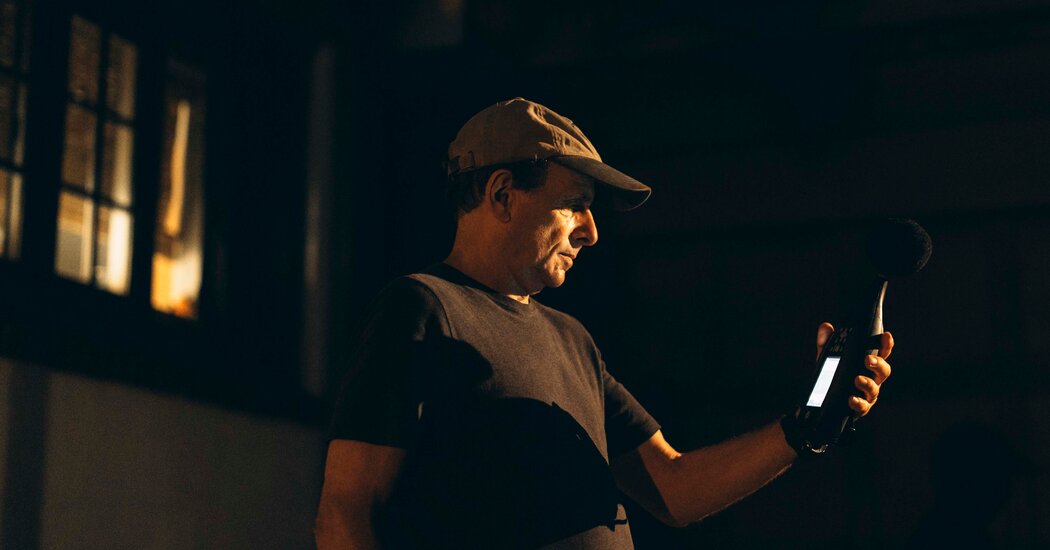Forest Hills Gardens Riled by Concerts – Noise Complaints Lead to Legal Wrangling
Title: Forest Hills Gardens Unhappily Host Rock Concerts
Introduction:
Located in Queens, Forest Hills Gardens is a peaceful neighborhood that has a rich history and a unique characteristic – it is home to one of the oldest tennis clubs, but recently, it has been transformed into a hub for rock concerts. While most residents welcome the lively atmosphere, others aren’t too thrilled about it. In this article, we take a closer look at the controversy between the concert promoters and the residents, what the law says, and how it plays out in the neighborhood.
Legal Wrangling:
Residents filed a lawsuit against the West Side Tennis Club, which controls the stadium, citing violation of noise regulations. However, a state supreme court judge dismissed the case, finding that the residents failed to show that noise from the stadium was either a public nuisance or a private nuisance. In a subsequent case, a different judge ruled that independent sound experts should monitor noise levels from the stadium, but the stadium was ordered not to pay for the monitoring.
Controversy Over Noise Meter Readings:
Noise meter readings taken by the city showed several homes in the neighborhood violating city noise regulations. However, only one ticket was issued, citing restrictions in the law and court decisions. The city’s Department of Environmental Protection said it was trying to work with the stadium to find ways to reduce noise from the concerts.
Residents’ Complaints:
Residents like Douglas Gilbert and Alan Fierstein have received noise complaints from their neighbors, detailing how the concerts have disrupted their usual routines. Fierstein explained that during some concerts, the music had violated the city’s noise code. Furthermore, residents have noticed windows and doors shaking, and some said that even chandeliers in front halls have jiggled to the music.
Petitions Signed:
Over 20,000 supporters have signed an online petition in favor of the concerts, citing the venue is a "greater neighbor than human neighbors." The stadium’s administration said that it spent $1.5 million on "sound mitigation." However, Fierstein believes these measures are insufficient and called the efforts "Band-Aid soundproofing."
Current Status:
The controversy is ongoing. Residents continue to voice their discomfort, while the stadium’s administration presses on with their plans. As seen in the recent noise meter reading statistics, there is still much work to do. The residents’ voices would be heard, and it is essential that actions are taken to ensure a peaceful environment once again.
Conclusion:
Forest Hills Gardens is a beautiful neighborhood with so much to offer. The concerts must find a way to coexist with their neighbors without disrupting their lives. All parties involved must work together towards a solution that respects both sides: the concert promoters and the residents. Effective noise reduction measures are necessary not only for the residents’ peace and quiet but also for the preservation of an amicable neighborhood.
Frequently Asked Questions:
Q: Were the noise meter readings recorded during the concerts?
A: No.
Q: Why was only one noise summons issued?
A: There are restrictions in the law and court decisions for the city to issue more summons than one per concert event.
Q: How did neighbors react to the noise complaints?
A: Many neighbors were understanding, but about 20,000 signed a pro-concert petition, voicing their support for the lively atmosphere.
Q: Did both parties work together to resolve issues?
A: Yes, but conflicts remain, and further negotiations between the concert promoters and residents could lead to a more harmonious result.
Q: Are there plans in place to mitigate noise levels?
A: Yes, the stadium spent $1.5 million on "sound mitigation", but some experts believe more effective efforts are needed.






